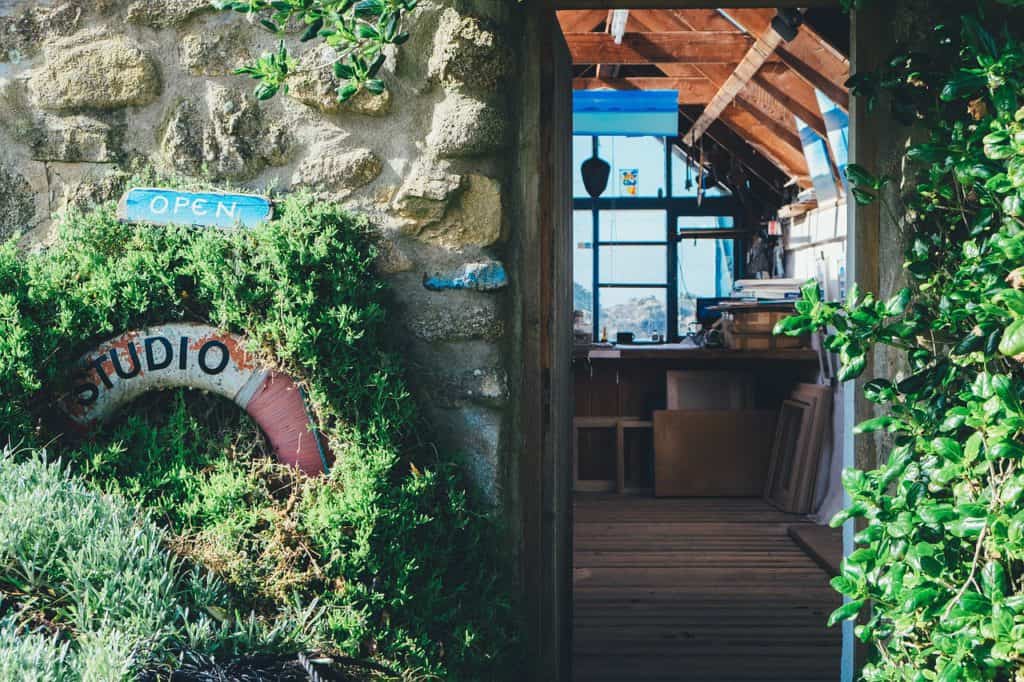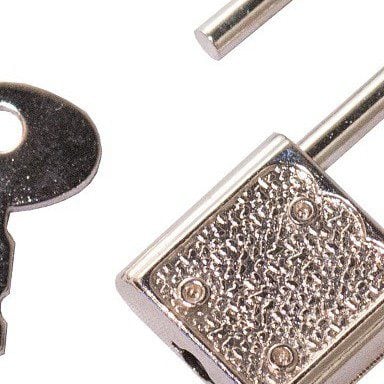
Editoral: The barefootaffiliate may receive a payment if you purchase something from an affiliate link. This is at no additional cost to you. I am not an employee of any company and the opinions expressed are mine and not representative of them.
THINKING OF PROFITING FROM YOUR PASSION and WONDERING: If or, are antique stores profitable? This article will answer some questions on this most interesting of hustles.
For instance: How much money can you make?
Google Research Shows, $45,000 – $60,000 per annum is used as a mean average for an antique store owner.
On average, those numbers are in a pretty good range when you consider…
- Many of these businesses are part-time,
- OR have limited their opening hours to periods of high traffic, particularly in tourist areas.
So Yes, they do look to be a profitable business that can be expanded on, or be built up for capital gain.
- 7 Things to Consider before opening an Antique Store
- 4 Reasons Antique Stores Lose Money.
- # 1st. Reason: A Bad Site
- # 2nd Reason: Paying too much for your Items.
- # 3rd Reason. Overstocking or Understocked!
- # 4th Reason: Cash Flow. Money out, Money in.
- What is an Antique?
- Most Profitable Antiques for a Store.
- How to Profit from Antiques.
- Overview of a Small Antique Booth
- Best location for an Antique store.
- Is Now a Good Time to Have an Antique Store?
- Regulations for Antique and Collectable Store Owners
7 Things to Consider before opening an Antique Store
Let’s deal with some common questions.
- Reasons antique stores lose money. I list 4 of the main reasons why.
- What is an antique? Artifacts, collectibles, vintage, antique
- Most profitable antiques? So many choices. Stay unique.
- How too profit from antiques? Fraud and counterfeits.
- The best location for an Antique store? Position, position, position
- Is now a good time to have an Antique store? Of course, it is
- Regulations for Antique store owners. Everyone wants a cut…
4 Reasons Antique Stores Lose Money.
# 1st. Reason: A Bad Site
Ok, it sounds obvious I know. If you are looking at a booth in a mall or flea market because of the low rent, then take a good look at the stores around you.
- What type of merchandise are others selling? Do they have good foot traffic through their store?
- What is the demographic of the foot traffic through the market? Would they buy what you are offering?
- Amenity: Does it seem friendly?, Lighting, air-conditioned, is it clean or piled high with items, Is the facade outside clean, parking?
People like to feel invited when entering a store, mall, or vendor show.
The rent may be inexpensive, but the reality is, it is inexpensive for a reason!
There could be numerous reasons, but if the most obvious reason appears to be that the disposable income of the shoppers there is not high.
You would be better off moving along.
Generally, antique items and collectibles are sold at a premium.
In saying that, nearly every coin and medal dealer I have seen, has been located in a dingy shop with poor lighting, and dark stained wood counters.
Usually, I see them in a street or corner position in a mall.
So there is a method to their ‘madness‘ Both sides display to traffic.
As for the appearance? I guess it creates an atmosphere of “yes we are old and we have old stuff.”
Some of their window displays could have been done better too.
Coin cases that could at least have had the dust brushed off them.
So, finding an affordable site in a good location is something that needs research!
# 2nd Reason: Paying too much for your Items.
You need to be hard-headed when buying antiques or collectibles.
For some sellers, it will feel like they are parting with an arm or a leg.
As a buyer, you might have to come up with sweeteners to make the amputation enjoyable.
Coming up with a package deal might work.
Then there are those who profit from deceit, selling fakes at inflated prices.
Your No.1 Priority is to resell at a profit. Sometimes it is not always possible to get the desired % but getting rid of stuff gathering dust makes room for potentially more profitable items.
Losses involving scams can be expensive and will leave a mental scar if you get taken for a large sum.
So double-check everything.
Don’t make spur-of-the-moment decisions based on your love for something.
Think of someone else who would buy it.
Remember you are buying to resell it not add it to your home collection.
Although there is no harm in buying for your personal collection.
Don’t think you will make 30% or more on every item, there will be times when some payment is due, and you will have to drop the prices on some things if you need to generate some quick cash flow.
# 3rd Reason. Overstocking or Understocked!
If you have seen the show “American Pickers” you will know they are often crawling around tight spaces looking for stuff when they are out picking.
On the rare occasions when you see a shot of their shop, the area for buyers has a welcome open feel to it, and it is generally presented in an organized manner.
It certainly doesn’t have a junk shop look about it.
You don’t want your customers tripping over things, or having things fall on them.
You also do not want the expense of breakages.
Either store excess items at home, or if you can afford it, a decent-sized store with a spare room for storage.
Either way, you can rotate items to keep your store fresh and interesting.
# 4th Reason: Cash Flow. Money out, Money in.
While it is nice to look at all the old pretty and not-so-pretty things in your store, your first priority is to treat it as a business.
You have gone to the trouble of signing a lease and probably had to comply with some ordinances, plus fill out a few pages of personal and business information so you can process credit cards.
So get serious.
Failing to start with a business plan will break you before you know it.
How do you intend to operate? Sole Trader or LLC.
You can see the pros and cons of that here.
Starting with a business plan will put all your outgoing allocations and to-do tasks in front of you.
Financial management needs to be handled diligently. Always.
Even if you have just taken a small flea market stall.
Keep track of everything. More on this in the video below.
If you haven’t added these items in the list below to your business plan you should.
Otherwise, you are leaving money on the table.
- Make it easy for customers to buy from you. Do you have a lay-buy system?
- Be willing to negotiate, 50% of something is better than 100% of nothing.
- Although Malls and Markets do some advertising. You need to get your name out there.
- Business cards still work. As do flyers.
- Social media. Just do what you need to, and don’t waste time there.
- Don’t forget eBay. It is still popular
- Take the opportunity to display your wares at local or nearby shows or markets. If they make the local news (print or T.V.), that is free exposure for you.
- Get a website happening, and get it in the local searches.
There are lots of good business management courses (either private or public), available.
Many of them are quite broad or have a long duration and can (often do), cost serious money.
There is an IAP course that is industry-specific and you can have it done in 6 weeks or less (part-time).
It will help make life easier when you apply for a business license, as well as provide you with good information on how to get your business up and running profitably. Click here for the details.
What is an Antique?
Probably a strange question, but sometimes the difference between collectible and antique can be blurred.
Much like Objects and Artifacts, which have different definitions in archaeological work.

An antique should be at least 100 years old.
A collectible typically falls within the 50-years-old or less category and is usually an item that was mass-produced.
Comics and Cars fall into this category.
Although there are cars that are designated antique because of their age.
A collectible can also be a one-off item:
A piece of artwork by a well-known artisan for example.
The key consideration in applying any description is that it should not be misleading. Terms such as ‘collectible’ or ‘vintage’ may be more appropriate than ‘antique’ for many pieces.
Business Companion.com
Getting as much knowledge of the various ages and conditions of items as you can, will help you determine your buying price and whether or not you can sell at a profit.
Most Profitable Antiques for a Store.
Take your pick there are thousands to choose from.
The most prized antiques are usually in private or government museums.
For the rest of us, the options are still good, because many of the antiques and collectibles that sell well in antique stores, were part of a not-so-long-ago contemporary lifestyle.
Even better, many finds of prized antiques are accidental!
Most likely you will have a preference, which is a good starting point because you have some (or a lot of), knowledge about it.
- Coins, Stamps, Paintings
- Vinyl Records, Cameras
- China: cups, tea sets, jugs, and dining pieces including cutlery.
- Ceramics
- Books and Comics
- Furniture
- Silverware
- Farm machinery, Fishing tackle
All of the above are popular and profitable in-demand items.
You may have some old kid’s toys stuck in a box somewhere.
Vintage toys are always in demand
The best places to source items are usually from deceased estates, auctions, garage sales, farms, and private sales.
Private Sales, generally offer a lot of information on the items they sell.
For example:-
- The existence or nature of the item ( what it actually is or does)
- Main characteristics of the item:- what it is made from, watercolor, 99% gold/silver, etc.
- Geographical origin of the item (‘Peru’, for example)
- Method and date of manufacture (such as describing an item as ‘Regency’)
- Usage of the product (its history, the who, what, and why)
- Price or the manner in which the price is calculated. Often this is a Book value based on condition, or what similar items are fetching.
Similar rules apply to coins, I’m of the opinion that there are more forgeries in coins than in art.
Make sure you are buying from only reputable dealers and beware of fraud.
Sometimes even reputable dealers get conned.
Although private sales may be priced higher than what you are willing to pay, they are still worth going to.
It is one of the best ways of gaining additional knowledge in a particular niche.

You can never know too much about things you are interested in.
Judging the condition of an item accurately and negotiating a price could help you land a highly profitable item.
I have seen T.V. shows where the guy doing the appraisals has found out more information on a piece when talking to the owner of an item.
How to Profit from Antiques.
Most stores tend to focus on one thing or compatible pairs.
That’s because they have knowledge of those and they are fluent when talking about them.
- Coins and stamps
- Fishing tackle and seaside art
- Books and Records
- Furniture, and lighting.
- Fine China and Cutlery.
- Paintings and Sculpture
Art need not be hard. You can have a combination of old and new.
Selling sketches, and paintings along with art supplies, for example.
Collectors like to go for rare things or unusual things.
Things no one else has, or very few people have.
So don’t be afraid of buying a random item if the price is right.
I do know of an instance where a guy selling antique fishing tackle, sold a vintage toy he bought because he thought it was a bargain.
He was right.
He didn’t display it. It was almost hidden in the corner of the back wall of his store, underneath shelves of wood fishing reels with a couple of old Fly fishing rods in front of it.
Personally, I think he had an attachment to it.
Have an understanding of restoration.
Sometimes restored items are worth less than unrestored originals.
Particularly if they have been modified. Keep your emotions in check when out buying.
Stick to a budget if you’re at an auction and don’t bid just to be the winner.
Remember: – Auctioneers have fees and charges that are added to the final selling price.
Selling on consignment is another option that can bring in extra income too.
Overview of a Small Antique Booth
The video below is a very honest, open account of one person’s antique booth.
Best location for an Antique store.
This does requires some serious thought.
Everyone’s circumstances are different, so I will just cover the more important parts of this.
- Mall
- Flea Market
- Stand alone shop in a good neighbourhood.
- Tourist area.
- Renting space in a coffee shop works for some collectors.
- Demographic, rich, average, poor?
Some I have seen are in the middle of nowhere but are a popular roadside stop, serving coffee and light snacks.
They also seem to stock more random items, sometimes unique to that area, rather than following any specific niche.
Some of it is combined with “touristy stuff” too. Junk at the front, good stuff down the back.
With a security camera keeping an eye on things!
Selecting a site needs to suit the items you want to sell.
Antique jewelry and silverware might work well next door to a coffee shop, as would an art store, even antique / restored furniture.
Provided the coffee shop is popular of course ?
The thing that matters most, is can the foot traffic afford what your offering.
And can you afford the rent and outgoings until you turn a profit?
Get that right and you will have an enjoyable business which can be duplicated if you feel inclined to.
Is Now a Good Time to Have an Antique Store?
Of course. Anytime is.
Forget all the doom and gloom in the media. They are playing another game.
- People love interesting things old or new.
- You can give them either or both.
- Pricing is in the eye of the beholder.
So whatever your offering may appear to be bargain to some, for others you might have to negotiate downwards a little, to where the buyer believes they have good value or even a bargain.
Regulations for Antique and Collectable Store Owners
This will vary country to country and State to State, and will depend largely on how you want to run your store.
Common to many Countries and States the rules generally include things like:-
- Importing and Exporting of Antiques
- Second hand dealing:- Is it a significant part of the business or just incidental? Jewelry buying and selling for instance can sometimes fall under Pawn Shop legislation.
- There is likely to be Money Laundering provisions you have to comply with, particularly if your into high end antiques or collectables.
- Tainted property:- There are rules you need to comply with in regards to this, in many countries.
- Consumer protection laws and unfair business practices apply to Antique and Collectable stores the same as they do in any other retail business.
- Firearms:- These can be a problem in some countries.
Be as specific as you can when applying for your business license.
That’s it !
Thanks for reading, and good luck if you venture into this most interesting of occupations.
Feel free to share this if a friend would find it useful.
Michael.










